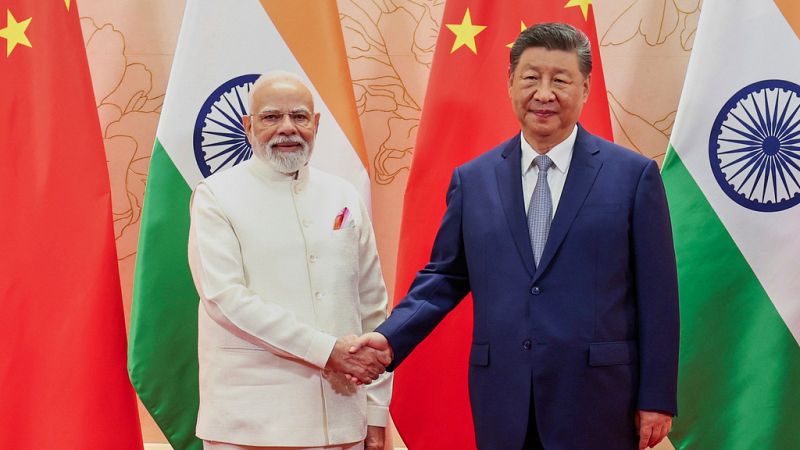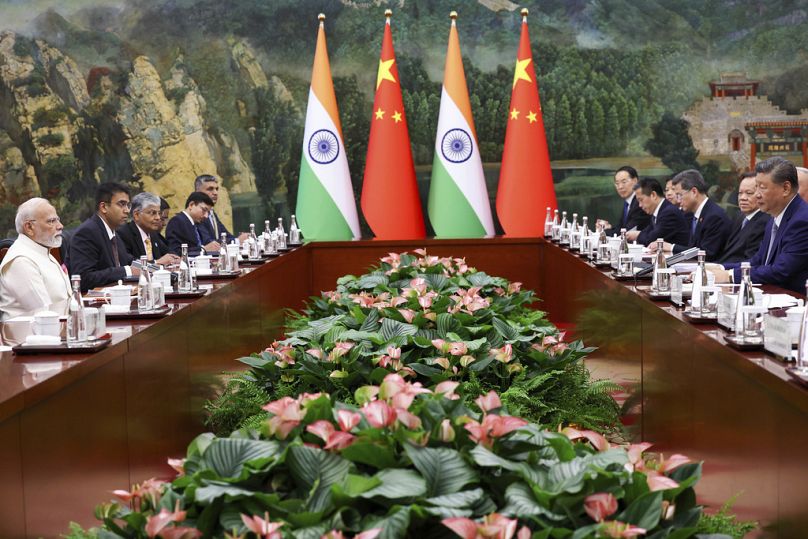China’s Xi and India’s Modi vow stronger ties in landmark meeting ahead regional summit

Chinese leader Xi Jinping and Indian Prime Minister Narendra Modi pledged on Sunday to settle their border differences and bolster cooperation in their landmark meeting ahead of the opening of a regional summit in Tianjin.
The visit to China is Modi's first visit since relations between the two countries deteriorated after Chinese and Indian soldiers engaged in deadly border clashes in 2020. The Indian prime minister is visiting as part of New Delhi's membership in the Shanghai Cooperation Organisation, a regional political, economic, and security group founded by China.
In his opening remarks, Modi said that relations with China have moved in “a meaningful direction,” adding that “there is a peaceful environment at the borders after disengagement.”
Xi said he hoped the Tianjin meeting would “further elevate” and “promote the sustained, healthy, and stable development of bilateral relations,” according to state broadcaster CCTV.
Xi: Border issues should not define relations
The two sides should “not let the border issue define the overall China-India relationship,” Xi said, adding that economic development for both countries should be their main focus.
“As long as they remain committed to the overarching goal of being partners, not rivals, and providing development opportunities, not threats, China-India relations will flourish and move forward steadily,” Xi said.
Earlier in August, China’s top diplomat Wang Yi flew to New Delhi, as the two sides announced their rapprochement. Both governments pledged to restart border talks and resume issuing visas and direct flights.
Wang’s visit coincided with US President Donald Trump’s decision to impose 50% tariffs on India over its purchase of Russian oil, but Delhi’s process of rebuilding ties with Beijing had been in the works for months.
This year has seen a rise in official visits between China and India, as well as discussions on removing some restrictions on cross-border travel and trade. Beijing opened Tibet's sacred sites to Indian pilgrims in June.
Amid the steep US tariffs on a range of Indian products, which came into force on 27 August, and its threat of a serious blow to India’s overseas trade, India is believed to have begun a search for new partners and markets and to be making efforts to strengthen existing ones.
Today


